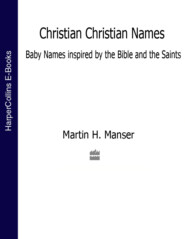По всем вопросам обращайтесь на: info@litportal.ru
(©) 2003-2024.
✖
Best Loved Hymns and Readings
Настройки чтения
Размер шрифта
Высота строк
Поля
Shine ever on my sight,
And clothe me round, the while my path illuming.
Let holy charity
Mine outward vesture be,
And lowliness become mine inner clothing;
True lowliness of heart,
Which takes the humbler part,
And o’er its own shortcomings weeps with loathing.
And so the yearning strong,
With which the soul will long,
Shall far outpass the power of human telling;
For none can guess its grace,
Till he become the place
Wherein the Holy Spirit makes His dwelling.
Bianco da Siena (c.1350-1434)
Come live with me and be my love (#ulink_402c5844-b404-595f-8eb5-89d0ad10158c)
Christopher Marlowe was first and foremost a playwright, the first great dramatist of the Elizabethan era and a major influence on the early work of William Shakespeare. This sensuous poem in praise of love, first published in 1599, is something of an oddity in his output. He appears to have written no other short poems and what we know of his life is completely at odds with the peaceable pastoral scene evoked here – though Marlowe’s subject must have been better off than the average shepherd to be able to offer his love golden buckles and silver dishes.
Come live with me and be my love,
And we will all the pleasures prove
That valleys, groves, hills, and fields,
Woods, or steepy mountain yields.
And we will sit upon the rocks,
Seeing shepherds feed their flocks,
By shallow rivers to whose falls
Melodious birds sing madrigals.
And I will make thee beds of roses
And a thousand fragrant posies,
A cap of flowers, and a kirtle
Embroidered all with leaves of myrtle.
A gown made of the finest wool,
Which from our pretty lambs we pull,
Fair lined slippers for the cold:
With buckles of the purest gold.
A belt of straw, and ivy buds,
With coral clasps and amber studs,
And if these pleasures may thee move,
Come live with me, and be my love.
The shepherd’s swains shall dance and sing,
For thy delight each May-morning,
If these delights thy mind may move;
Then live with me, and be my love.
Christopher Marlowe (1564-93)
Crossing the bar (#ulink_92752bf5-3601-5ae1-a35a-a430c4d75819)
This consolatory poem is often recited at funerals to assuage the grief of mourners. The allusion in the title is to a vessel passing over an offshore ridge of sand, mud or shingle marking the entrance to a harbour or river, used here as an allegory for the departure of the soul at death.
Sunset and evening star,
And one clear call for me!
And may there be no moaning of the bar,
When I put out to sea.
But such a tide as moving seems asleep,
Too full for sound and foam,












